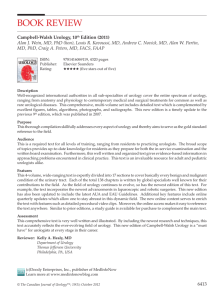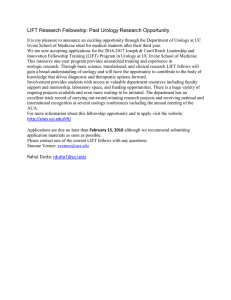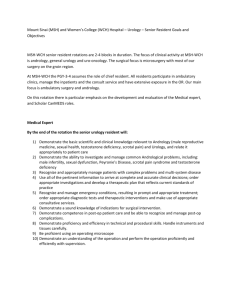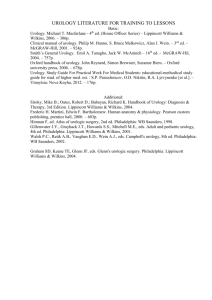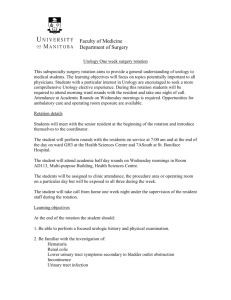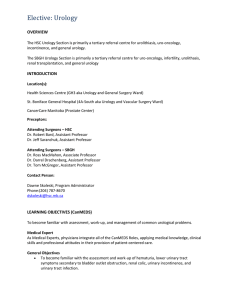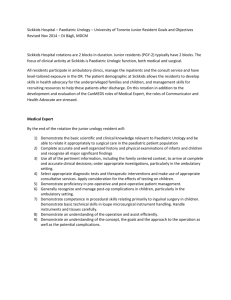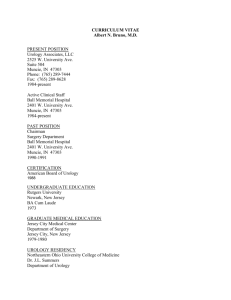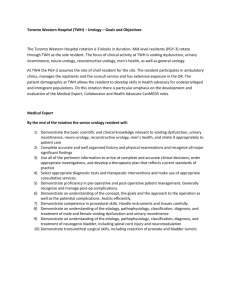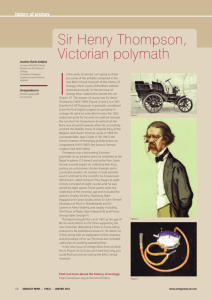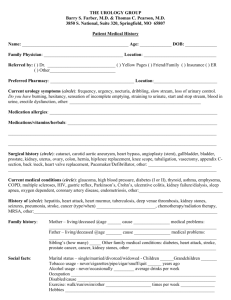Urology Sub-Internship Core Competencies
advertisement
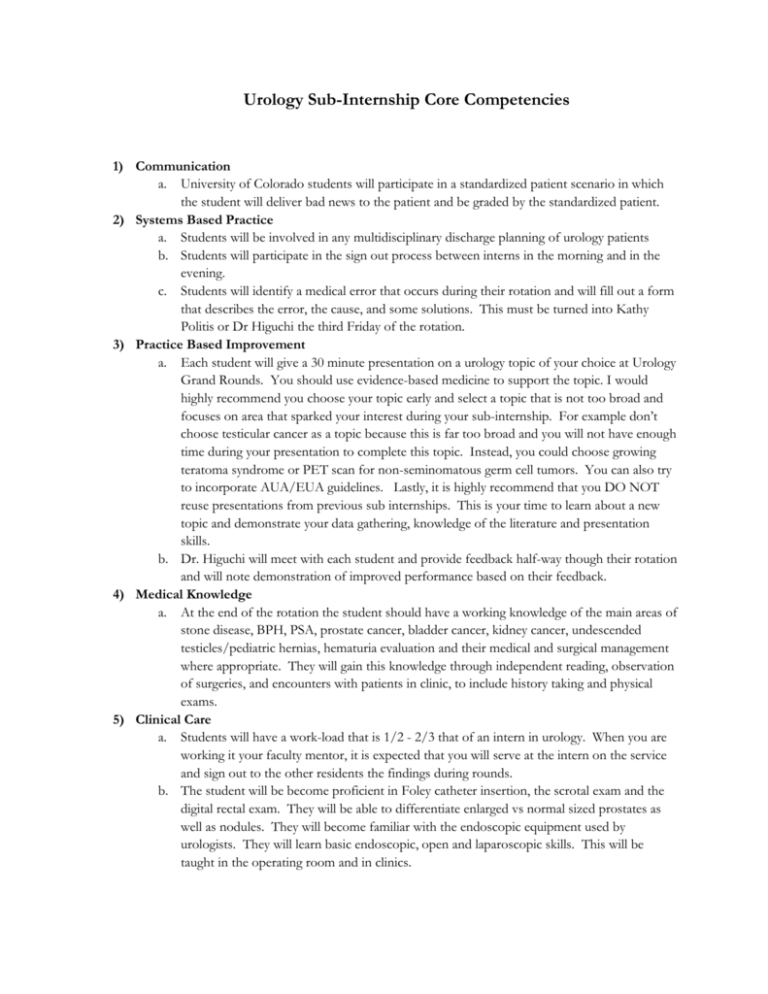
Urology Sub-Internship Core Competencies 1) Communication a. University of Colorado students will participate in a standardized patient scenario in which the student will deliver bad news to the patient and be graded by the standardized patient. 2) Systems Based Practice a. Students will be involved in any multidisciplinary discharge planning of urology patients b. Students will participate in the sign out process between interns in the morning and in the evening. c. Students will identify a medical error that occurs during their rotation and will fill out a form that describes the error, the cause, and some solutions. This must be turned into Kathy Politis or Dr Higuchi the third Friday of the rotation. 3) Practice Based Improvement a. Each student will give a 30 minute presentation on a urology topic of your choice at Urology Grand Rounds. You should use evidence-based medicine to support the topic. I would highly recommend you choose your topic early and select a topic that is not too broad and focuses on area that sparked your interest during your sub-internship. For example don’t choose testicular cancer as a topic because this is far too broad and you will not have enough time during your presentation to complete this topic. Instead, you could choose growing teratoma syndrome or PET scan for non-seminomatous germ cell tumors. You can also try to incorporate AUA/EUA guidelines. Lastly, it is highly recommend that you DO NOT reuse presentations from previous sub internships. This is your time to learn about a new topic and demonstrate your data gathering, knowledge of the literature and presentation skills. b. Dr. Higuchi will meet with each student and provide feedback half-way though their rotation and will note demonstration of improved performance based on their feedback. 4) Medical Knowledge a. At the end of the rotation the student should have a working knowledge of the main areas of stone disease, BPH, PSA, prostate cancer, bladder cancer, kidney cancer, undescended testicles/pediatric hernias, hematuria evaluation and their medical and surgical management where appropriate. They will gain this knowledge through independent reading, observation of surgeries, and encounters with patients in clinic, to include history taking and physical exams. 5) Clinical Care a. Students will have a work-load that is 1/2 - 2/3 that of an intern in urology. When you are working it your faculty mentor, it is expected that you will serve at the intern on the service and sign out to the other residents the findings during rounds. b. The student will be become proficient in Foley catheter insertion, the scrotal exam and the digital rectal exam. They will be able to differentiate enlarged vs normal sized prostates as well as nodules. They will become familiar with the endoscopic equipment used by urologists. They will learn basic endoscopic, open and laparoscopic skills. This will be taught in the operating room and in clinics. c. Students will interact with nurses and other physicians/staff taking care of urology patients on the floor, in the OR, and in clinics. d. Students will demonstrate organizational skills and efficiency in maintaining clinical information on the patients they cover on the floor, and in dividing their time between the OR/clinic and the floor. 6) Professionalism a. Students will maintain HIPAA compliance during their rotation, as well as a respectful demeanor toward patients, physicians, staff, and others they encounter. They will dress in an appropriate and tidy manner for clinics and the OR.

